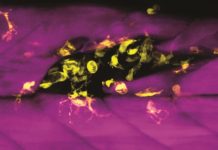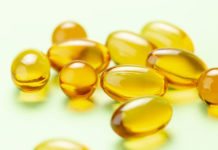 A recent study has revived interest in a compound called (-)-epicatechin, a molecule found in chocolate that is claimed to be a myostatin inhibitor. Myostatin deficiencies are known to greatly increase muscle mass without the major side-effects associated with anabolic steroids. Hindering myostatin’s actions would be able to replicate this effect.
A recent study has revived interest in a compound called (-)-epicatechin, a molecule found in chocolate that is claimed to be a myostatin inhibitor. Myostatin deficiencies are known to greatly increase muscle mass without the major side-effects associated with anabolic steroids. Hindering myostatin’s actions would be able to replicate this effect.
Myostatin is a myokine – a kind of regulating molecule released by muscles. The ‘opposite’ of myostatin is another myokine called follistatin that indirectly promotes muscle growth by hindering myostatin signalling.
While there are a few supplements that are known to interact with myostatin signaling (like sulforaphane), none had been tested in the context of human supplementation, until now.
A recent study examined the effects of (-)-epicatechin when supplemented by people. Already, new supplements are popping up on the shelves, containing (-)-epicatechin and claiming to be myostatin inhibitors.
Myostatin and follistatin both have potential to alter muscle growth rates, but supplements and foods affecting these molecules have limited evidence in humans.
Should you supplement (-)-epicatechin or eat more chocolate to build muscle? Let’s dissect the study and find out.
Read more: http://bit.ly/1u6NBI8














